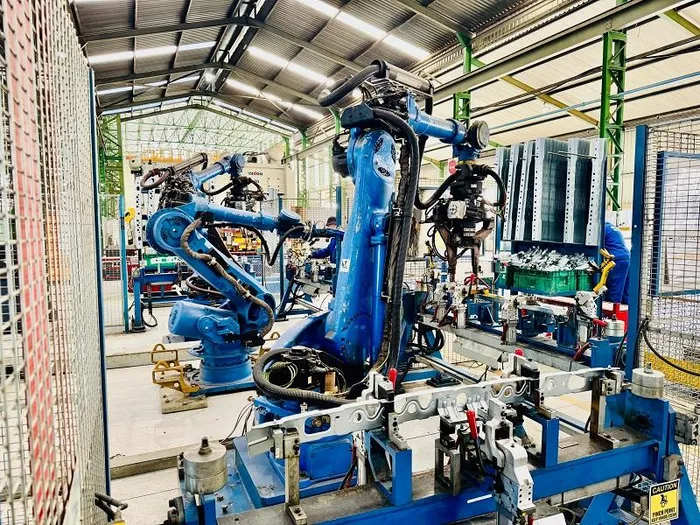
Emerging automotive hubs in countries like Morocco, Nigeria, Ghana, Kenya, and Egypt demonstrate an increasing demand for South African components, ranging from engine parts and tyres to cutting-edge Electric Vehicle (EV) technologies.
Image: Supplied
The National Association of Automotive Component and Allied Manufacturers (NAACAM) 2025 show revealed that South African manufacturers are poised to reap significant benefits from the African Continental Free Trade Area (AfCFTA).
Unveiling the latest industry insights, Luthando Vuba, executive head of international trade at Standard Bank Group's Business and Commercial Banking, last week highlighted how the AfCFTA is paving the way for South African suppliers to deepen their presence in burgeoning automotive markets across Africa.
Emerging automotive hubs in countries like Morocco, Nigeria, Ghana, Kenya, and Egypt demonstrate an increasing demand for South African components, ranging from engine parts and tyres to cutting-edge Electric Vehicle (EV) technologies.
Vuba pointed out that while the sector showed resilience, it faced challenges.
He said the latest data from NAACAM revealed a contraction of 6.7% in motor vehicle, parts, and accessories manufacturing in May 2025, contributing to a 0.6 percentage-point decline in total manufacturing output. However, sales rose by 3.9%, buoyed by robust aftermarket demand and increased exports to non-US markets.
Vuba added that the automotive sector is a priority for the AfCFTA agreement.
“We are having a transformation of the automotive sector if you look at the alternative more sustainable production, whether it is the hybrid or electric vehicle. If we look at what goes into that, those raw input products are something that the continent is rich in,” he said.
“The African continent may not be seen yet as a big global player in the automotive industry, but with the AfCFTA agreement and the raw minerals, there is potential for growth.”
Countries like Ghana, Nigeria, and Morocco are making remarkable strides in establishing their automotive industries. In South Africa, fresh developments signal an optimistic outlook, with Mahindra's recent announcement of a new facility in the country marking a significant investment in Africa's automotive landscape.
Vuba mentioned that Africa's automotive sector is forecasted to grow from $21.07 billion (R369bn) in 2024 to $33.14bn (R580bn) by 2033, at a compound annual growth rate of 5.16%. South Africa is expected to maintain a prominent share, accounting for 28.4% of this market in 2024, driven by its manufacturing capability and export potential.
“This highlights the region's automotive supply chain as a considerable market for South African suppliers,” Vuba said,
Vuba indicated that the framework laid out by the AfCFTA to stimulate growth, particularly through the automotive sector, is crucial for increasing intra-African trade and fostering economic integration.
“Exporters will need the tools to diversify markets, strengthen supply chains, and stay competitive in a rapidly changing environment. The continent's abundant natural resources and strategic positioning in the global supply chain provide a unique opportunity for a transformation of the sector.”
Leigh-Anne De Witt, the head of business banking coverage (Eastern Cape) at Business and Commercial Banking, Standard Bank South Africa, acknowledged the current state of the automotive industry as being at a critical juncture.
“It's not only the US tariffs; it's mobility trends, geopolitical influences, and challenges with Transnet and power utility Eskom. Some of the international automotive giants have also had issues here, like Mercedes Benz South Africa’s East London plant, which was temporarily shut down and has since reopened. That was a concern as they import directly to the United States,” she said.
“We have a positive outlook and believe that Mercedes-Benz will find solutions.”
On a positive note, De Witt highlighted the exceptional pool of human talent within South Africa's automotive sector.
"We have a very good educational institution that upskills the labour force from engineering skills to computer skills and Artificial Intelligence, and we can leverage that to our advantage. It's not all doom and gloom,” De Witt said.
“There are challenges, as trends suggest that consumers prefer an imported vehicle to a locally manufactured vehicle, and it is important to change that and how we can create different consumer preferences for locally produced vehicles, which will create jobs and boost the economy and the automotive sector.”
BUSINESS REPORT